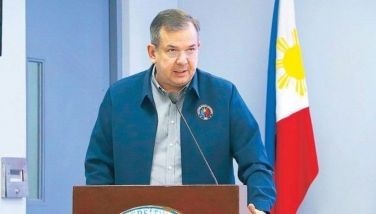Donaire and the Cuban curse
It was indeed a sad day for Filipino boxing when Nonito Donaire Jr. lost his WBO super bantamweight championship to WBA counterpart Guillermo Rigondeaux. Experts favored Donaire going into the fight, mainly taking into account his longer experience as a professional, and the fact that he had been undefeated for 12 years. They considered Rigondeaux a late bloomer who still had an amateur style, and who was shorter than the Filipino Flash. Donaire himself acknowledged that he did not really know Rigondeaux’s style. It also looked as if the WBA king was in better shape for the fight.
But ultimately, experts underestimated one trait in the two-time Olympic champion’s resumè. He’s Cuban. That carries the weight of a very strong boxing history that few talk about. And that is mainly because outside of the occasional brushes with Fidel Castro, the US media generally overlooks the small country across the water. Besides, they would rather not talk about Guantanamo.
In 1912, the Cuban government banned boxing for almost a decade, lifting the ban at the end of 1921. By 1959, the country had half a dozen world champions. (From that era, you could look up Kid Gavilan and Kid Chocolate and find how respected they are, even today). A couple of years later, though, Fidel Castro banned all professional sports. So amateur boxing flourished. In fact, in some Olympics, it is only Cuba and the US that manage to field contenders in every weight class.
There are only three boxers in history who have won three Olympic gold medals, and two of them are Cuban, Teofilo Stevenson and Felix Savon. That stat alone speaks volumes. It means one thing: as a group, Cuban boxers probably have the most solid technical foundation of any country in the world. It is part of their educational system from early on, and from the age of 12, the more promising athletes are sent to state-run sports schools to improve their skills. And most Cuban fighters never turn pro because of their communist beliefs.
Stevenson first came to prominence at the 1972 Munich Olympics. In his first bout, he viciously knocked down Ludwik Denderys in the fight’s first 30 seconds. At the time, Duane Bobick, who had beaten Stevenson at the Pan American Games the year before, was hyped to continue the heavyweight Olympic gold string of Joe Frazier in 1964 and George Foreman in 1968. (Cassius Clay, the future Muhammad Ali, was just a light heavyweight when he won the gold in Rome in 1960.) Stevenson caused a stoppage by knocking Bobick down three times in the third round. He marched on to his first gold.
He won the gold again in Montreal in 1976 and in Moscow in 1980, following in the footsteps of Laszlo Papp as the only men to be good enough and stay amateur long enough to win three Olympic gold medals. If not for the Soviet boycott of the 1984 LA Games and Cuba’s embargo of the 1988 Seoul Olympics, who knows if Stevenson would have won a fourth or fifth Olympic gold? He retired after the 1988 Summer Games. The BBC considered him the second-most famous Cuban after Fidel Castro, and the country’s greatest boxer of all time.
I had the fortune of meeting the 6’4†behemoth at the Atlanta Olympics with the Philippine broadcast contingent. He still had massive arms and looked like a brown wall of oak. But you’d easily ignore this due to his respectful, mild personality. After his second gold medal, he had actually been offered millions of dollars to fight world heavyweight champion Ali in his debut as a pro, something which had been done only once before. He explained why he turned it down.
“I love my country and my country loves me,†was his only explanation. In this writer’s honest opinion, Ali would have been in trouble. Stevenson died of a heart attack two years ago.
Joel Casamayor, meanwhile, is considered the greatest active Cuban boxer, and one Rigondeaux most probably emulated as a younger boxer. After a long outstanding amateur career, Casamayor was fearsome as a pro, winning his first 26 bouts, 16 by knockout. And some of his opponents looked like “El Cepillo†had taken a straight razor to their faces. But for Filipino fight fans, we will probably remember Casamayor because he lost his world title to Juan Manuel Marquez by 11th-round TKO in “Dinamita’s†lightweight debut in 2008.
One thing about Cuban boxers is their discipline. Most grew up in very sparse living conditions, and were chosen by the government to become boxers in their youth. The majority like Rigondeaux, have fought over a hundred amateur fights, with their main goals winning the AIBA World Amateur championships or Olympics. They manage to live without the trappings or sensationalism of pro boxing, and it doesn’t really mean that much to them. Their success inside the ring does. Most of them have spent more time in the ring as amateurs than most pros have all their lives. And that is what makes them great.
Nonito Donaire learned this the hard way.
- Latest
- Trending





























